Voice of Nepal winner Kiran Gajmer: ‘Country is identity, bridge of music relations’

KATHMANDU: AUGUST 22 – One evening in 2010. Kiran Gajmer, the winner of the third edition of Voice of Nepal, does not remember the exact month.
“It was summer,” he says, remembering the half-point he wore at the time. People from the Bhutanese refugee camp in Khudunabari, Jhapa, were enjoying the cool breeze outside Tahara.
Suddenly, the sound of someone breathing hard came from his house.
Gajmer says, “We also rushed to the room in a hurry and panicked. Grandma had a hard time again. She was unconscious. We took her to the health post inside the camp.”
Grandmother Naramaya, who had just turned 57, had a heart condition. He also had asthma and diabetes. Sometimes he was afflicted with the disease and recovered after the usual medication.
On that day, treatment at the health post was not possible. It was suggested to take him to the hospital. “It was almost midnight, there were no private vehicles or taxis. How to get there?”
Gajmer’s father and uncles repeatedly called for an ambulance. No one came in contact, so someone said it would take time.
“We waited but time didn’t wait. Grandma passed away,” he said.
A few months later, the Gajmer family left Nepal.

The United Nations launched a third country resettlement program for Bhutanese refugees in 2006. About 100,000 people traveled to the United States, Canada, Australia, and Europe. The Gajmer family’s turn came in 2011. They went to America.
Gajmer says America is a dream country for many but a country of compulsion for them.
He says, “Our dream was to be able to live as Nepalis. We wanted to be able to speak our own language, our own soil, our own society and our own culture. But the law of Nepal did not recognize us as Nepalis.”
When they arrived in the United States, they were overwhelmed by suffering and deprivation. Lifestyle became somewhat comfortable. After running out of kerosene, there was no fear of leaving homework in half. I was forced to leave Nepal.
“We went from darkness to light, but my grandmother did not have a comfortable life. If she had been taken to the hospital on time, it probably would not have happened. There was always the fatigue of not being able to save her.”
Gajmer is currently studying breathing at Webster University in Missouri.
Aiming to serve patients with respiratory problems like his grandmother, Gajmer always thought, “If I go to Nepal one day, I will help treat the common man.”
Thus the dream came true
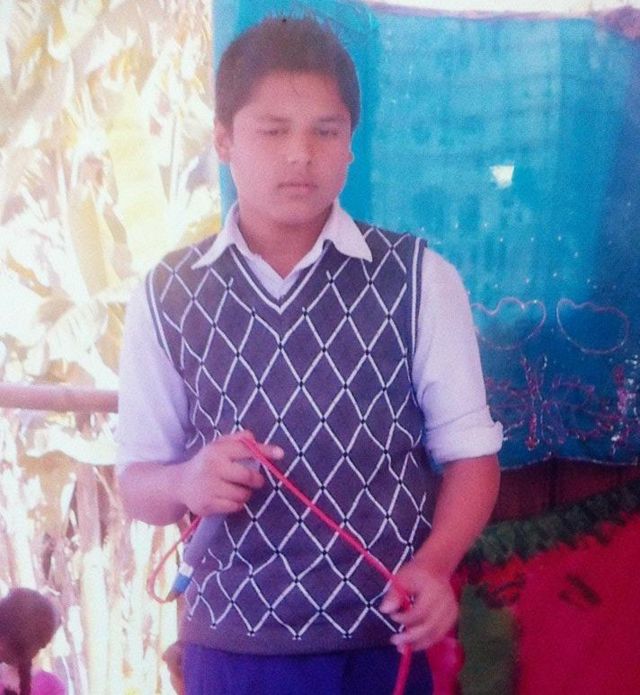
On August 7, Kiran Gajmer was declared the winner of the third edition of ‘The Voice of Nepal’. He announced that he would purchase an ambulance for the refugee camp and help those deprived of coronavirus vaccination by adding Rs 2.5 million to the prize money.
Taking the title in hand, he said, “My family held me in their arms again. For me, this is the citizenship of Nepal.”
He told the BBC: “It is not just me but the entire Nepali-speaking Bhutanese refugee who have for years embraced the Nepali language, culture, art and literature but have not become part of Nepal. There are still thousands of Bhutanese refugees who want to be Nepali and live in Nepal.”
He said that he was born in a camp in Nepal and expressed his love for the country and the happiness of being a Nepali speaker. His dream was shaped by Nepali music, which was attached to the Khudunabari camp.
Music taught by grandfather in his lap
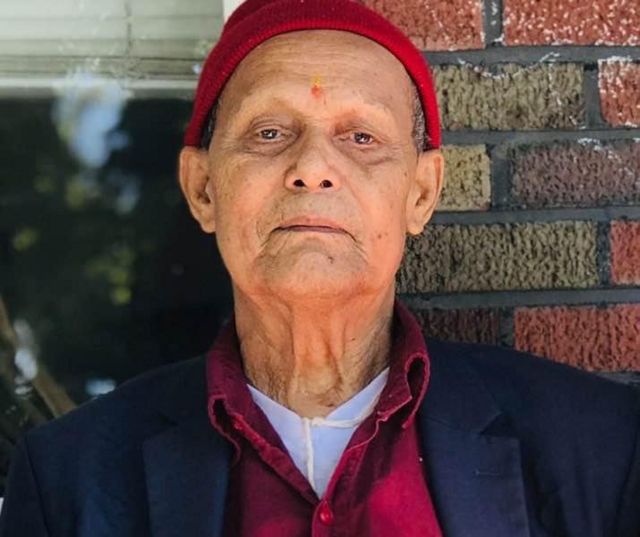
Gajmer’s grandfather Ayman was a priest. Therefore, morning and evening hymns were sung in his house. He sometimes followed his grandfather to satsangs.
He says that the musical atmosphere there attracts him and he sings the hymns when he returns home. Grandfather would point out where the differences were.
While in Bhutan, my grandfather learned to make and play music. He feels like his grandfather taught him to play the madal by holding him in his arms to fulfil his dream.
Gajmer says, “It was my grandfather who filled me with the juice of music.”
Gradually, his voice began to resound in the school programs. The teachers sometimes made me sing by giving me a pen and sometimes made me laugh by giving me, sweets.
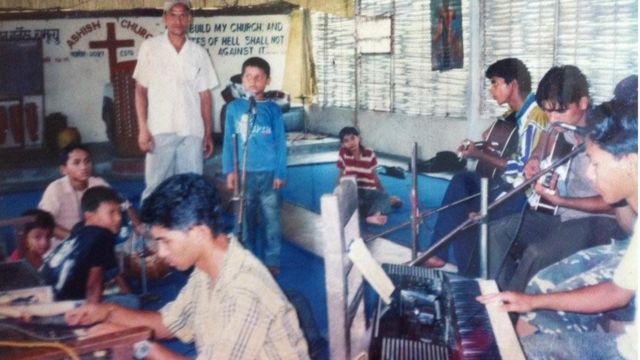
When Kiran was six years old, the Bhutanese Refugee Children’s Forum brought an opportunity for children with singing talents – the musical album ‘Bal Koseli’.
Kiran Gajmer was one of the children from the seven camps who sang in it.
He was also selected for Bal Koseli Part 2. After that, her singing journey was not limited to camp and school programs. I met people active in art and literature outside the camp. Fellowship with creative people explained, “Singing is not only a means of entertainment but also a powerful means of expression.” Then he even started writing songs.
“I started writing when I realized that my experience could be a song or a poem. When I didn’t have anyone to listen to, the diary was always with me. I was able to express myself confidently in it.”
While searching for the country
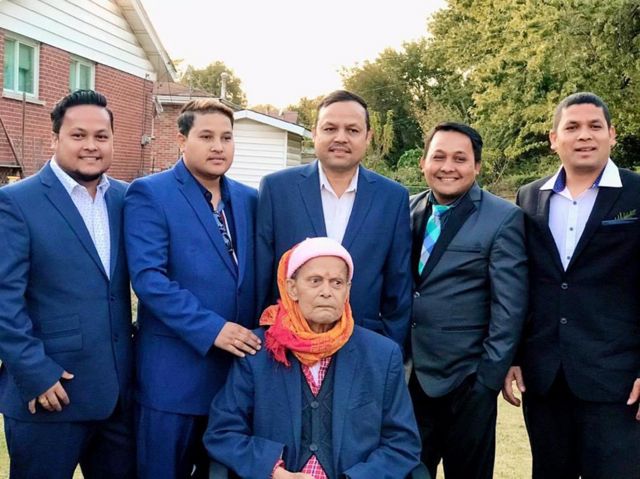
After arriving in the United States, Gajmer’s writing and musical journey slowed down.
At that time, there was confusion in his large family. Some of my father’s five brothers were in favour of leaving Nepal, while others argued that they would die in Nepal. There was a reason – they came to Nepal from Bhutan looking for a country.
“We were connected to Nepal because of the language. We had people who understood and listened to what we said, which made us more attached,” he said, adding that he did not want to go abroad.
“I was afraid that I would not be able to live in another country without speaking.”
His four uncles had started living separately. The two rooms of the bamboo-covered pavilion were already five. His own house was cramped and there was no space left to burn.
His family decided to leave Nepal.
“I had to choose between identity and life. Seeing the extreme form of deprivation, my parents chose America even for us.”
The first flight of life
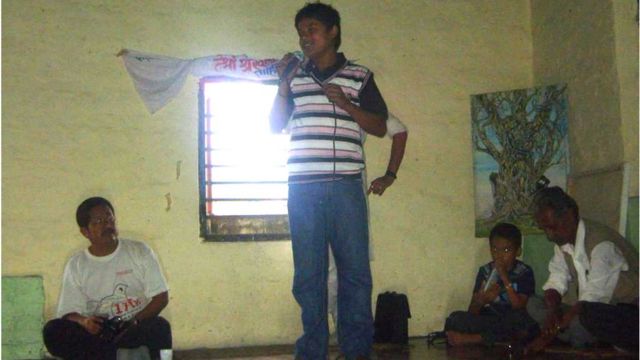
It had become a regular process to get people out of the camp, to fill the eyes of everyone around, to hand over the utensils and cattle to the neighbours who liked them. The children in the camp calculated how many days they had left to board the plane.
Gajmer was 14 years old when the plane was scheduled to land. So when I got out of Khudunabari by car and there were tears in his eyes, there was excitement in his mind, looking down from the sky.
“I was brought to Kathmandu and kept there for four days. When I reached the airport from where we were staying, I was worried that I was leaving my homeland. The first time I was flying, I did not return. I burst into tears. I did not want to look down from the plane.
In Nepal, Kiran was left with a growing tent, her friends who grew up with her were left behind, her brother and the betel nut plant she grew up with were left behind, and the whole group that encouraged her to write and sing was left behind.
All of this was accepted as destiny. “I was exhausted when I opened the bag and found out that the diary was missing,” he says.
“It wasn’t just a diary, it was part of my suffering. I didn’t get it even if I earned millions. It hurt a lot.”
He decided in his heart, one day I will go to Nepal and bring a diary.
The roads are paved
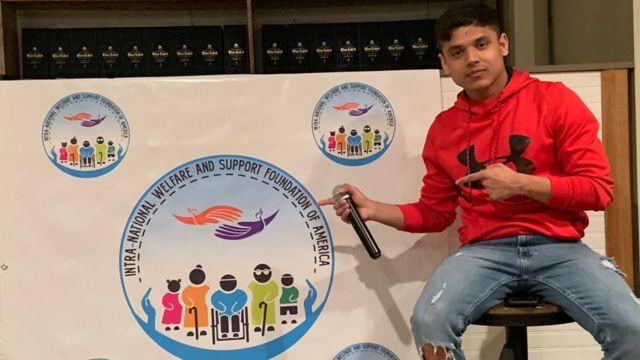
After starting his medical education, Gajmer, who was busy with his studies, was intrigued by the Nepali-speaking Bhutanese living in the United States.
There was a request to become a representative of the community and participate in ‘Voice of Nepal’. Music became a means of leading to the homeland and preparations began with enthusiasm.
Her grandfather died in February 2021. He was overwhelmed with pain.
“Initially, it was difficult to decide whether to go to Nepal or not because I was emotionally and mentally weak,” he says.
“I think I should go even if my grandfather is not there to give meaning to what I have learned from him.”
He came to Nepal after stopping his studies. Sang the song He won the hearts of the judges and listeners, got votes and finally won the title.
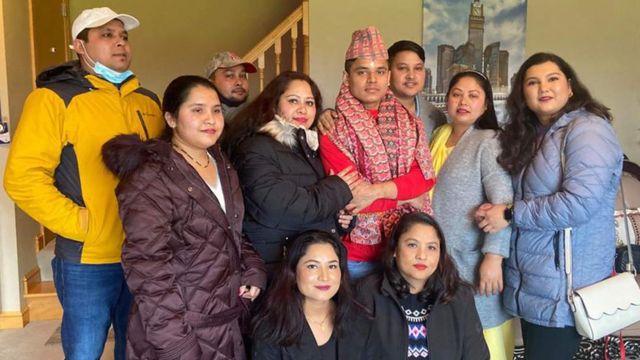
“The love for Nepali music participating in such a big reality show is enough, citizenship is not needed. I am happy that Nepalis from all over the world have cut their throats and voted.”
He went to the place where he was born and raised to celebrate the victory. When he got out of the car, his eyes did not find what he was looking for. The camp will become a forest. The dense settlement of houses has thinned. The way they walk will be difficult to walk on.
Many could tell by the smiles of the neighbours. He says, “Ownership is felt from the eyes to the arms.”
“I saw a green tree in front of the house and a betel tree planted by myself behind the house but I didn’t see the house. There was no diary left inside the house but I vividly remembered the moments spent and experienced there. I will write. ”
They came with dreams, they are returning with determination
When Kiran Gajmers reach Nepal from Bhutan and other countries from Nepal, they feel that their identity has been lost somewhere. But he claims that they have not spared any effort to preserve Nepaliness wherever they go.
He is the representative of those who have to pass on Nepali language, culture, art and literature to themselves and their generations.
What did the trip to Nepal after 10 years give him except the title?
He says the trip is also important for overcoming the discrimination and hurt caused by the tag “You are a Bhutanese refugee”.
He will return to the United States with the determination to continue the music he left behind.
“Country is an identity. That identity gave me the title of ‘Voice of Nepal’. It is a bridge between music and emotions. Now I will continue to use music to strengthen the bridge between Nepal and Nepalis.”
Gajmer says that art, music and creation always identify him as a Nepali. The same message was given by singing the song of Mantra Band in the final of Voice of Nepal:
‘Someone will tell you that this is not your country,
Tell him where I will be, that is my country. ‘









